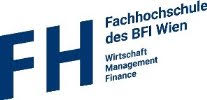Master Programme International Banking and Finance – University of Applied Sciences BFI Vienna
Vienna, Austria
Reviewed by ZeVa
- Valid from
- 01-02-2023
- Valid until
- 31-01-2023
Contact information
- Institution
- University of Applied Sciences BFI Vienna
- Website
- http://www.fh-vie.ac.at/
- Country
- Austria
Assessment report
0540 CeQuint IBF FinalExecutive Summary
The master programme in International Banking and Finance (IBF) was assessed by the expert panel on invitation by Central Evaluation and Accreditation Agency Hanover (ZEvA). ZEvA convened the panel which studied the self-evaluation report and undertook a site visit at the campus of the HEI in Vienna, the 22nd of June 2022. The procedure covered the three degree programmes “European Economy and Business Management” (B.A.), Quantitative Asset and Risk Management (M.A.) and IBF, which is the subject of this assessment report. First, the panel would like to compliment the HEI and all staff for their strong commitment to further develop the international and intercultural dimensions of the programme. All elements supporting these dimensions are adequately to more than adequately addressed in the programme. The panel was able to convince itself that the international spirit is indeed lived and continuously reflected at the HEI in order to improve internationalisation.
The panel concludes that the internationalisation goals relate strongly to teaching and learning. The measures included contribute to their quality as such and undoubtedly contribute to the quality of teaching and learning. The panel found that the programme has clear internationalisation goals which are adequately documented and well suited to a Master’s programme in International Banking and Finance. Altogether the internationalisation goals are sufficiently operationalised in objectives which are verifiable to allow the monitoring of the achievement of these goals. The panel recommends not only developing more verifiable indicators, but also focusing on more challenging indicators that are more difficult to achieve and also cover longer periods of time to allow for a long-term perspective of progress. The panel therefore assesses Standard 1. Intended internationalisation as good.
The panel deems all the underlying criteria of international and intercultural learning to be met. It is appreciated that the university has already taken the initiative to develop more sophisticated surveys to obtain further evidence on the extent to which the ILOs are achieved. It is evident that the University does not consider the ILOs merely as an add-on to traditional studies, but takes an integrated approach that includes many innovative approaches. The panel would like to recommend to put more emphasis on developing a quality cycle that measures the achievement, defines corrective measures once necessary and also follows up its impact and results. The Panel is convinced that the University will easily surpass this standard if it takes a more systematic approach to surveying graduates and evaluating them in the future. The panel therefore assesses Standard 2. International and intercultural learning as satisfactory.
The panel found that the content and the structure of the curriculum provide effective means for achieving its international and intercultural intended learning outcomes. The international classroom and a clearly internationalised curriculum guarantee that all students make international and intercultural experiences. Many other options, including mobility options, complement the possible individual experiences that can be made. In addition, the teaching methods are fitting and the learning environment provides suitable conditions for achieving the international and intercultural intended learning outcomes. The panel therefore assesses Standard 3: Teaching and Learning as good.
The panel found the staff composition, staff experiences, knowledge and skills and services provided for staff members to be very much in line with the international and intercultural dimensions of the programme. The panel found the programme to surpass the generic quality for this standard. The programme clearly goes beyond the acceptable level of attainment across the standard’s entire spectrum. The panel deems all the underlying criteria of this standard to be more than appropriately met. To even further improve, the panel recommends to further diversify the composition of staff by integrating more people with foreign/intercultural backgrounds and to better define a desired staff profile to cover international and intercultural competences. The panel therefore assesses Standard 4: Staff as good.
The panel learnt that the university manages well the international student groups trying to maximise their international experiences. In addition to experiencing an international curriculum in an international student group, students bring in their personal (international) work experience to add up to these experiences. A double degree programme may help to further improve the mobility numbers and therefore have a positive impact on student experiences in the classroom as well. The panel deems all the underlying criteria of this standard to be surpassed and likes to encourage the HEI to maintain this high standard. The panel therefore assesses Standard 5: Students as good.
To conclude, IBF is an international Master programme which is covering typical aspects of an international programme: English is the language of instruction, a clearly internationalised curriculum including intercultural components, mobility of students and staff, and student cohorts representing several nationalities. Accordingly, the panel advises the European Consortium for Accreditation (ECA) to award the Master programme in International Banking and Finance of the University of Applied Sciences BFI Vienna (UAS BFI Vienna) the ECA Certificate for Quality in Programme Internationalisation.